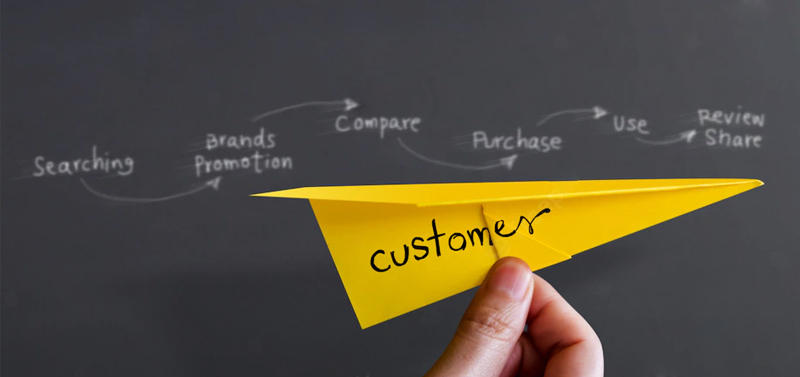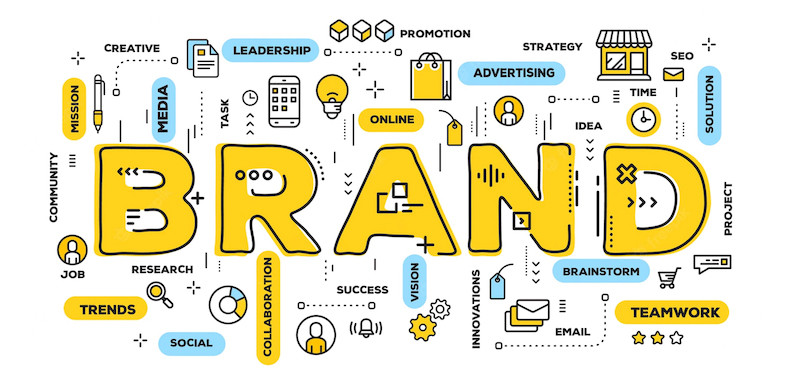January 12, 2023 10:46AM
What is Customer Experience?

Companies and brands today interact with customers across a wide range of touchpoints. Whether it is by email, telephone or in person, all of these interactions create an overall customer experience (CX). The goal of a good customer experience is to create positive and memorable experiences with the aim of building brand loyalty and returning customers.
What is the Importance of Customer Experience
In today’s modern times, there is certainly no shortage of brands and products available for customers to choose from in the market. Because of this customers are much more likely to switch to alternative brands faster when faced with a bad customer experience.
It is important for companies to make an effort to understand their customers' needs and wants and deliver a positive experience in order to stay competitive and retain customers.
A good customer experience is essential for the following reasons:
- Increased Customer Loyalty: When a person has a good experience with your brand they are more likely to become a repeat customer.
- Improve Brand Reputation: It’s well known that one of the strongest marketing tools is positive word of mouth, which is essential for the growth and sustainability of a business.
- Lower Costs: Prioritising customer experience will reduce the chance of losing customers, which will impact the overall cost of acquiring new customers and the growth of the business.
- Increased Market Share: Brands which provide a positive customer experience will often stand out in the market against competitors and over time can use this as an advantage to capture a larger market share.
- Better Decision making: Having a good understanding of the customer experience through feedback and analysis can help businesses make more informed decisions on products, processes and services.
How to Measure Customer Experience
Depending on the environment your business operates in ie: retail store or online sales, a wide range of metrics can be used to measure the customer experience.
Most customer experience experts rely on metrics from Customer Satisfaction Research, in order to gauge an understanding of performance. This often includes the widely used Net Promoter Score (NPS) which provides the benchmark for measuring customers’ experience metrics and also understanding how likely customers are to recommend your brand to others.
Here are some more examples of how customer experience (CX) is measured across different business types and industries:
- Customer Surveys: Available for both online and offline businesses, customer surveys can provide valuable feedback from customers on their experience with your brand.
- Customer Effort Score: When handling complaints and enquiries a Customer Effort Score asks the customer to rate the effort required to resolve a particular issue.
- First Call Resolution: Using this metric brands can measure the percentage of customer service interactions which are resolved within the first call.
- Time to Resolution: Used across Customer Service channels this metric measures the total amount of time taken to resolve a particular issue or complaint.
- Customer Retention Rate: This metric is used to measure the number of customers who continue to purchase from your business over a period of time.
When measuring customer experience metrics it’s essential to look at the entire customer journey rather than a specific experience.
For example: When a customer makes a complaint with the customer services team, looking at the entire customer journey will also include the amount of time taken to connect with a customer service team rather than just the complaint itself.
By understanding the complete journey of the customer experience, brands can make better-informed decisions on processes and understand how each touch point can be optimised for better performance. Another important function of the customer journey is that when KPIs begin to increase or decline it is much easier to know where to look.
When measuring customer satisfaction, it is important to understand which goals are essential to your business and included in the customer experience. Here are a few widely used metrics for tracking different customer goals.
- Customer Purchase: Used to measure customer acquisition
- Setting Up the Product/Service: Used to measure onboarding
- Resolving an issue: Used to measure the effectiveness of customer service
Examples of Good Customer Experience
- Popular movie & music streaming platforms are constantly increasing the amount of content available to users. To reduce the amount of time taken to find what they need, many popular platforms now suggest content to users based on past streaming history.
- E-commerce businesses are constantly analysing user metrics to make the shopping experience faster and easier for the customer to navigate and make a purchase. Automated emails with offers and promotion is another great way to stay engaged with customers and improve customer retention rate.
- Beauty brands are constantly looking at ways to stay engaged with customers and increase brand loyalty in retail stores. One way of achieving this has been to give customers the chance to try beauty products before they purchase. With a makeup artist on site not only do customers get a chance to try the brand but they also benefit from free advice and tips from a trained professional.
4 Steps to Ensure a Good Customer Experience
Here are our top 4 Steps to ensuring your brand offers customers a positive customer experience
- Create a Customer Experience Strategy: Having a strategy in place will help you plan out and detail how different customers’ needs are met and also help you identify how you will meet their expectations across the customer journey.
- Listen To Customer Feedback: Receiving feedback from customers in real-time through tools such as online surveys is a great way to understand customers’ satisfaction levels and also allows you to make better-informed decisions faster.
- Focus on Providing Great Customer Service: As well as responding to issues fast, employees should also have a great understanding of the brand’s product or service. For a more friendly and positive experience avoid using automated solutions where possible as customers often want to speak to a person and get frustrated when not able to.
- Understand Your Customers: The best way to keep customers satisfied is to have a good understanding of what they want. The use of customer relationship management (CRM) services is a great way to measure customer engagement and understand the customer journey.
Improving the way brands measure customer experience is the key to building trust and loyal customers. With advancements in technology allowing us to capture and measure data more and more, brands are now able to put customers and their goals first, and then align the brands ’KPIs and success metrics to these goals.
How Can Vodus Help You Improve Your Customer Experience?
By having the largest online panel in Malaysia via our Vodus Media Network that has a combined sampling frame of 17 million consumers, Vodus is best suited to help you gather the most accurate and representative data to calculate your Brand Equity Score.
Vodus can help you measure and improve the customer experience with our Customer Satisfaction Research solutions. We will survey your target consumers to measure consumer perception and customer satisfaction as well as diagnose any underlying issues with your brand. From this, we can then construct a strategy to improve the overall customer experience for your brand.













